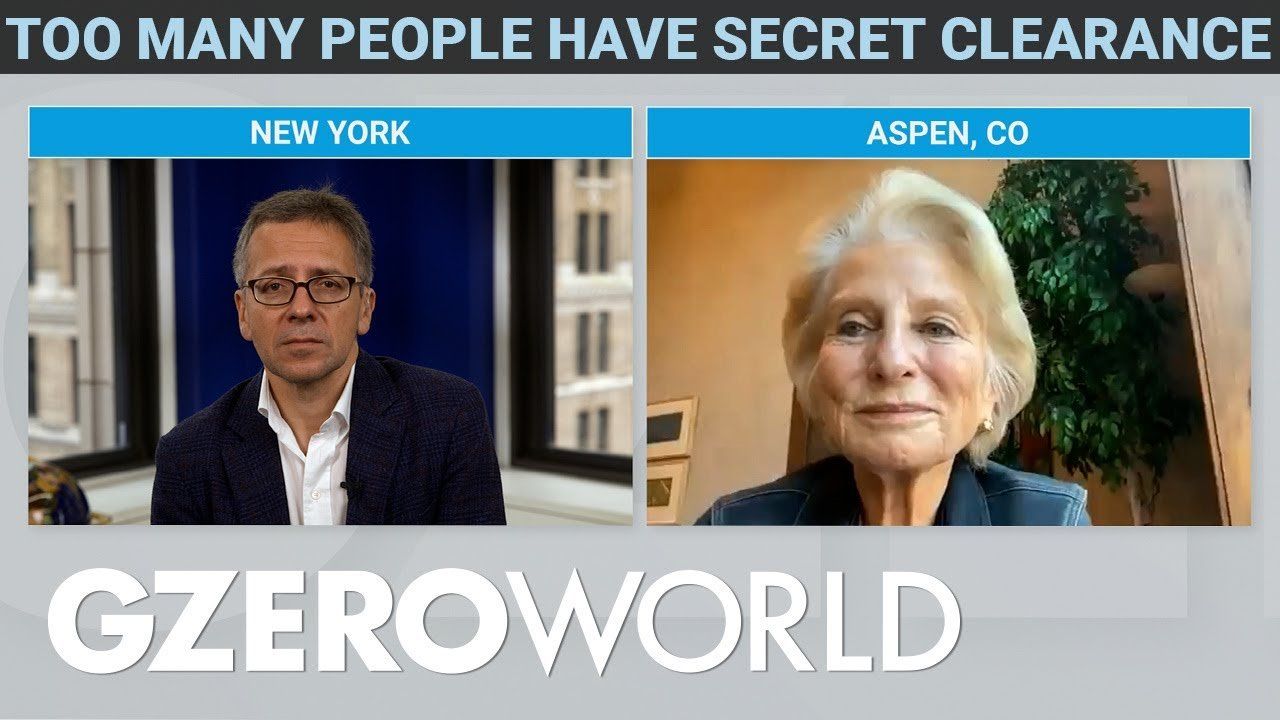GZERO World Clips
Too many people have US security clearance: former House Intelligence Committee member

Too many people have US security clearance: former House Intelligence Committee member | GZERO Media

The US government has an over-classification problem. Too many documents are marked "secret" that shouldn't be. And according to this week's guest, the over-classification problem has also created an over-clearance problem. Jane Harman, a former nine-term Congresswoman who led high-level intelligence committees, says that the two problems are closely related. "We over-classify, we over-clear. Our clearance problem is very cumbersome" Harman tells Ian. As a result, many people with clearance tend to err on the side of classifying information rather than risking their position by making public the wrong document.
"I argued we needed a tiered classification system where you can clear people only up to a certain amount. In other words, a person who speaks a regional dialect could be given papers to read, but not told the context of the papers, so that person would just translate the language. "
But, Harman says, we're still a long way from solving this problem.
To see the full interview with Jane Harman, watch GZERO World with Ian Bremmer at gzeromedia.com/gzeroworld or on US public television. Check local listings.
For many in Iran, it’s a waiting game for how long Ayatollah Khamenei has left to live.
In a 30-minute call on Thursday, President Donald Trump reportedly told Ukrainian President Volodymyr Zelensky he wants to end the war with Russia as soon as possible — aiming for a deal by summer, but ideally within weeks.
Former British ambassador to the U.S. Peter Mandelson leaves his residence after he was released following his arrest by London police on Monday on suspicion of misconduct in public office, following the release of U.S. Justice Department files linked to the late financier and convicted sex offender Jeffrey Epstein, in London, Britain, February 26, 2026.
The ghost of Jeffrey Epstein continues to haunt the world.
Think you know what's going on around the world? Here's your chance to prove it.